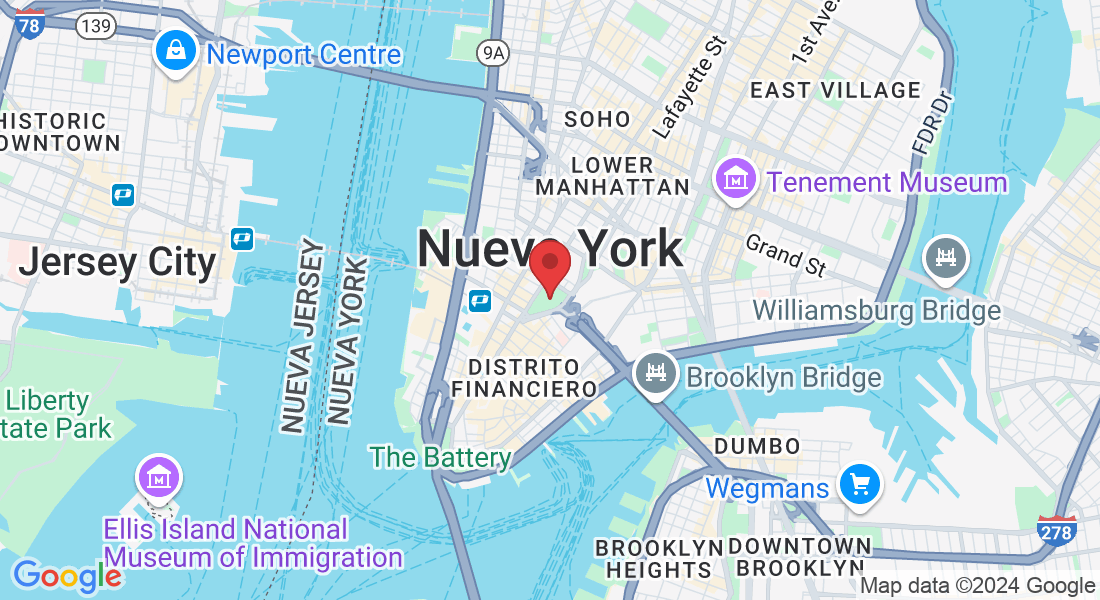
Added protection, helping to rebut the presumption of state ownership of all property as identified in the Senate document 74, of the 73rd Congress

When you purchased an automobile, who was the owner?
When you purchased an automobile, who was the owner? Senate Document No. 43, "Contracts Payable in Gold" written in 1933: "The ultimate ownership of all property is in the State; individual so-called "ownership" is only by virtue of government, i. e., law, amounting to mere user; and use must be in accordance with law and subordinate to the necessities of the State."
Property right, are they protected?
Absolute title is an exclusive title to a property which excludes all others not compatible with the right. Absolute title is free of liens and attachments. Absolute title replaces all previous titles. An absolute title is acquired by a registered landowner under the registered land system. A purchaser would obtain no more absolute title than was possessed by his/ her vendor, and when the absolute title never became vested, the purchaser would obtain nothing. [Roy v. West, 194 Ky. 96 (Ky. 1922)


Insurance, what is it really?
Collateral insurance is a type of insurance that your lender may purchase for you if you’re unwilling or unable to secure your own car insurance policy. You will have to cover the costs, however, and they are tacked on to the monthly note for your car loan.
Identification while in public, includes property?
There are often laws that require individuals to identify themselves to law enforcement officers if they are stopped or detained under reasonable suspicion of criminal activity. This means that while you might not be obligated to carry identification at all times, you may be required to provide your identity to authorities under certain circumstances.

YOUR RIGHT TO BE SECURE is our foremost concern, should it not be yours?
Please note the following facts:
★★★★★
The right to security is a fundamental human right that is enshrined in many international and national laws. It includes the right to be secure in one's person, possession, property, and assets.
In the United States, the Supreme Court has held that the Fourth Amendment protects the right to security in the home. This means that the government cannot enter a person's home without a warrant, unless there is an emergency or the person consents to the search.
In Canada, the Supreme Court has held that the right to security includes the right to be free from unreasonable electronic surveillance. This means that the government cannot use electronic surveillance to spy on people without a warrant, unless there is a reasonable suspicion that the person is involved in criminal activity.
★★★★★
The right to security of the person is the right to be free from physical harm. This includes the right to be free from violence, torture, and other forms of abuse. It also includes the right to be free from arbitrary arrest and detention.
n South Africa, the Constitution protects the right to security of the person. This right has been used to challenge government policies that have led to violence and displacement.
The right to security is an important right that protects people from harm and interference. It is essential for human dignity and well-being. The law plays an important role in protecting the right to security, and it is important to hold governments accountable for any violations of this right.
★★★★★
The right to security of property is the right to be free from interference with one's property rights. This includes the right to own property, to use property, and to dispose of property as one sees fit. It also includes the right to be free from government expropriation of property without just compensation.
The right to security of assets is the right to be free from interference with one's financial assets. This includes the right to own assets, to use assets, and to dispose of assets as one sees fit. It also includes the right to be free from government seizure of assets without due process of law.
★★★★★
The right to security of possession is the right to be free from interference with one's possessions. This includes the right to be free from theft, robbery, and other forms of property crime. It also includes the right to be free from government seizure of property without due process of law.
The right to security is a fundamental human right that is essential for human dignity and well-being. It is protected by a variety of laws, both international and national. The government may interfere with the right to security in some cases, but any interference must be justified and must be carried out in accordance with the law.
★★★★★
The right to security is essential for human dignity and well-being. It allows people to live their lives without fear of harm or interference. It also allows people to participate fully in society and to contribute to the economy.
The right to security is protected by a variety of laws, both international and national. The most important international law protecting the right to security is the Universal Declaration of Human Rights. Article 3 of the Universal Declaration states that "everyone has the right to life, liberty and security of person."
The right to security is also protected by many national constitutions. For example, the United States Constitution protects the right to security in the Fourth Amendment, which prohibits unreasonable searches and seizures.
PRICING
Please understand, that the automobile portion of the cost will have an additional fee charged that we have no control over, and depending on your preferences can range from $250-$500. This will provide security for the automobile for up to 3 years, operating as collateral coverage for the property, to be displayed to anyone asking for proof of liability coverage.
Take it back
$660.00 USD
This is a standard fee, it covers the items listed below, when ready to make a purchase, simply click that get started button:::
We will be providing the following services:
Collateralizing vehicle up to $25,000 (please understand, this insurance is purely third-party company and they have their fee, it ranges from $25 to $250-$500, depending on the State),
We will also be providing the documentation, dissecting the valuation of the vehicle, the amount of monies paid, the interest associated, and the right of recoupment.
We will also assist in the gaining control of their decedent's estate, as it is a common fact, that the State may use the all capitalized name for corporations differentiated from the natural person, and now we are going to gain control of that entity as required in law for everyone as of their 18th birthday!
These cases all hold that the use of all-capital letters is a convention used to distinguish corporations from natural persons. They also hold that this convention is well-established and is supported by both federal and state law.
In Re: Chase Manhattan Bank, 585 F.2d 1087, 1090 (2d Cir. 1978)
First National Bank of Boston v. Bellotti, 435 U.S. 765, 784 (1978)
AT&T v. FCC, 487 F.2d 865, 870-71 (2d Cir. 1973)
Bank of America Nat'l Trust & Sav. Ass'n v. 203 North LaSalle Street Partnership, 526 U.S. 434, 439 (1999)
State v. J.L. Manufacturing Co., 92 S.E.2d 177, 180 (N.C. 1956)
State v. Swift, 276 N.W. 789, 792 (Wis. 1938)
State v. Superior Court in & for Maricopa County, 582 P.2d 496, 500 (Ariz. Ct. App. 1978)
United States v. 21st Century Tobacco, LLC, 505 F.3d 1069 (9th Cir. 2007)
In re Tyco International Ltd. Securities Litigation, 422 F.3d 389 (2d Cir. 2005)
Amato v. FDIC, 399 F.3d 356 (2d Cir. 2005)
United States v. Global Crossing Ltd., 375 F.3d 1218 (11th Cir. 2004)
In re Enron Corp. Sec. Litig., 250 F.3d 1322 (5th Cir. 2001)
GAINING CONTROL:
FEDERAL UNDERSTANDING -
WHO IS THE MINOR
The Age of Majority Act, also known as the Uniform Transfers to Minors Act (UTMA), says that an individual remains a minor until they gain control of the securities held in a minor account because the law recognizes that minors may not be able to make sound financial decisions on their own.
The UTMA gives a custodian the authority to manage the assets in a minor's account until the minor reaches the age of majority, which is typically 18 years old. The custodian is responsible for investing the assets, making withdrawals, and paying taxes.
There are a few reasons why the law treats securities held in a minor account differently from other assets. First, securities are more volatile than other assets, such as cash. This means that there is a greater risk that the value of the securities could decline significantly if the minor makes a poor investment decision.
Second, securities can be more difficult to understand than other assets. This is especially true for minors, who may nSample 1ot have the financial knowledge or experience to make sound investment decisions.
Third, securities are often illiquid, which means that they can be difficult to sell quickly. This could be a problem for a minor who needs to access the funds in their account for an emergency.
The UTMA is designed to protect minors from these risks by giving a custodian the authority to manage their securities until they reach the age of majority. This allows the custodian to make sound investment decisions and to protect the assets from being lost or squandered.
Here are a few case-by-case examples that support the Age of Majority Act:
In the case of In re Estate of Smith, the court held that a minor who had inherited securities was not entitled to control the securities until she reached the age of majority. The court found that the UTMA applied to the securities, even though they had been inherited, and that the minor was not competent to manage the securities on her own.
In the case of In re Estate of Jones, the court held that a custodian who had invested a minor's securities in a risky investment was not liable for the losses. The court found that the custodian had acted in good faith and that the minor was not competent to make investment decisions on her own.
In the case of In re Estate of Brown, the court held that a minor who had reached the age of majority was entitled to control the securities that had been held in a custodian account for her. The court found that the UTMA did not apply to the securities once the minor reached the age of majority, and that the minor was competent to manage the securities on her own.
These cases all support the Age of Majority Act by showing that the law is designed to protect minors from the risks of investing in securities. The law gives custodians the authority to manage the securities until the minor reaches the age of majority, when the minor is presumed to be competent to make their own investment decisions.
Minnesota Court Rule 220 requires that an affidavit be filed with the Registrar of Titles in order to register a memorial upon an outstanding certificate of title. The affidavit must state that the person named in the birth certificate is the same party as one of the owners named in the certificate of title. The affidavit must also state that the person named in the birth certificate has attained the age of majority.
Here is a simple affidavit that you can use to meet the requirements of Minnesota Court Rule 220:
I, [Your Name], being duly sworn, depose and state as follows:
1. I am the person named in the attached birth certificate.
2. The attached birth certificate shows that I was born on [Date of Birth].
3. I have attained the age of majority in the State of Minnesota.
[Signature]
[Date]
You will need to have this affidavit notarized before you can file it with the Registrar of Titles.
Here are some additional things to keep in mind when filing an affidavit under Minnesota Court Rule 220:
The affidavit must be in writing and signed by the person who is attesting to the facts stated in the affidavit.
The affidavit must be notarized.
The affidavit must be filed with the Registrar of Titles within 30 days of the date of the affidavit.
The ACT was supposed to terminate, but when ?
Age of Majority and Trust Termination -
The age at which the minor takes control of the custodial account depends on the minor’s state of residence and whether the custodial account was created as an UGMA or an UTMA account. Each state may have additional provisions affecting the age of termination. Also, some states permit the donor or transferor to specify a different age of termination at the time the gift or transfer is made. Note that the age of termination is not necessarily the same as the age of majority in the state. The age of majority is the age at which an individual can sign contracts (i.e., no more “defense of infancy”). The age of termination is not the same as the age of majority. In most cases the age of termination comes later. (The age of majority for signing contracts is 18 in most states, except Alabama and Nebraska, where it is 19, and Indiana, Mississippi, New York and Puerto Rico, where it is 21. For child support purposes, the age of majority is 18 in most states, 19 in Alabama, Colorado, Maryland and Nebraska, and 21 in D.C., Indiana, Mississippi, and New York, with exceptions for a later age of majority if the child is still in secondary school.) The age of termination for UGMA and UTMA accounts is listed in the following table. Note that some states permit the transfer to occur at a later date if this is specified in the titling of the account. For example, California allows the transfer to be delayed until as late as age 25 if the trust is titled “as custodian for (Name of Minor) until age (Age for Delivery of Property to Minor)”. If the trust is not titled in this manner, the age of trust termination remains age 18.
Minnesota Court Rule 220 deals with the requirements for registering a birth certificate as proof of age. The rule states that a birth certificate must be accompanied by an affidavit stating that the person named in the birth certificate has attained the age of majority. The affidavit must be sworn to or affirmed by the person named in the birth certificate, and it must be notarized. The affidavit must state the following: The name of the person named in the birth certificate. The date of birth of the person named in the birth certificate. The fact that the person named in the birth certificate has attained the age of majority. The signature of the person named in the birth certificate. The date of the affidavit. The signature of the notary public.
Here is a sample affidavit that you can use:
I, [name of person named in birth certificate], being duly sworn or affirmed, depose and state as follows: My name is [name of person named in birth certificate]. I was born on [date of birth of person named in birth certificate]. I have attained the age of majority.
This affidavit is made by me this [date] day of [month], [year].
[Signature of person named in birth certificate]
[Notary Public]
My commission expires: [date]
An affidavit is likely necessary?
(*) All states repealed their UGMA statutes upon enacting their UTMA statutes. Any UGMA accounts in existence before the date of the repeal are grandfathered using the original UGMA age of termination. The relevant dates when UTMA took effect for the various states are listed in this column. Emancipation The Higher Education Opportunity Act of 2008 amended section 480(d)(1)(C) of the Higher Education Act of 1965 to treat as independent any student who becomes an emancipated minor before reaching the age of majority. The specific legislative language is:is, or was immediately prior to attaining the age of majority, an emancipated minor or in legal guardianship as determined by a court of competent jurisdiction in the individual’s State of legal residence. The term “emancipation” is often used when a child reaches the age of majority or child support obligations end, but this is not the same as an “emancipated minor”. An emancipated minor becomes an adult able to sign contracts before reaching the age of majority through a court order. A court order terminating child support upon the child’s reaching the age of majority does not qualify, not even if it uses the word emancipation. For example, in California, the California Family Code section 6710(a) requires a person who has attained the age of majority to file an affidavit with the court stating that they have attained the age of majority. The affidavit must be filed within 30 days of the person's birthday. The purpose of this law is to ensure that the court is aware of the person's new legal status as an adult. This is important for a number of reasons, such as: The person may be entitled to certain rights and privileges, such as the right to vote or the right to enter into contracts. The person may be responsible for certain obligations, such as the obligation to pay taxes. The person may be able to make certain decisions on their own, without the consent of their parents or guardians.
If you are an individual who has attained the age of majority in a state that has a law requiring an affidavit, you should contact the court in your jurisdiction to find out more about how to file the affidavit.
Here are some other states that have laws requiring an individual to produce an affidavit upon attaining the age of majority:
Arizona, Colorado, Florida, Illinois, Indiana, Iowa, Kansas, Kentucky, Louisiana, Maine
PMB: 304 S. Jones Blvd.
Void Eeon opt-out
LAS VEGAS, Nevada Non-Domestic
PLEASE NOTE, this is not a mailing address or process serving address, prior approval is necessary before any items may be sent to this address, absolutely no parcels and or bulk mail accepted!
1844-SATCOMM
Please note that the information contained in this section is not for the service of process, please inquire as to the correct means for service of process TERMS AND CONDITIONS APPLY.
PMB: 304 S. Jones Blvd.
Void Eeon opt-out
LAS VEGAS, Nevada Non-Domestic
PLEASE NOTE, this is not a mailing address or process serving address, prior approval is necessary before any items may be sent to this address, absolutely no parcels and or bulk mail accepted!
1844-SATCOMM
Please note that the information contained in this section is not for the service of process, please inquire as to the correct means for service of process TERMS AND CONDITIONS APPLY.
